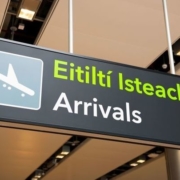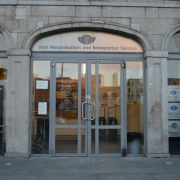MINISTER RICHMOND ANNOUNCES LARGEST EVER EXPANSION TO THE EMPLOYMENT PERMITS SYSTEM
On the 20th of December 2023, the Minister of State for Business, Employment and Retails announced significant changes to Ireland’s employment permits system. These changes include an increase in salary thresholds for permit holders and an additional 43 occupations becoming eligible for employment permits.
Minister Richmond stated that the changes have been introduced to reflect both inflation and economic growth in the State and the necessity and of the skills, experience and cultural diversity that Migrants bring to Irish society.
From 17th January 2024, the minimum salary for new General Employment Permits (GEP) will increase from €30,000 to €34,000. Employers seeking to hire GEP roles are advised should advertise this salary rate as Labour Market Needs Tests that do not reflect the appropriate salary will be rejected.
The new standard Critical Skills Employment Permit minimum salary requirement has also increased to from €34,000 to €38,000.
Health care assistants and home carers salary requirement will increase from €27,000 to €30,000 and the minimum salary for meat processors and horticultural workers will increase from €22,000 to €30,000. These changes bring all permit holders in line with the minimum salary requirement for family reunification as many workers in these roles will wish to avail of this.
Additionally, a number of occupations have now become eligible for employment permits as of 20th December 2023.
Occupations added to the Critical Skills Occupations List include:
- Professional Forester
- Resource modelling, earth observation and data analyst
- Meteorologist
- Operational Forecaster
- Chemical Engineer
- Project Engineer
- BIM Manager
- Optometrist (Ophthalmic Optician)
- Commercial Manager
- BIM Coordinator/Technician
- Estimator
Occupations eligible for a General Employment Permit:
- Residential Day and Domiciliary Case Managers – in Disability Services
- Play Therapist – in Disability Services
- Genetic Counsellor
- Social Care Worker
- Family Support Workers – in Disability Services
- Project Offices, Disability
- Support Worker (social, community, public and charity)
- Guide Dog Mobility Instructor for the Visually Impaired
- Autism Assistance Dog Instructor
- Pig Managers
- Smiths and forge workers
- Moulders, core makers and die casters
- Metal plate workers and riveters
- Car mechanic, Motor mechanic, Auto electrician, Motor vehicle technician
- HGV mechanic
- Vehicle body builders and repairers/Body shop panel beaters
- Electrician, electrical contractor, electrical engineer,
- Vehicle paint technician
- Skilled metal, electrical and electronic trades supervisors
- Upholstery and furniture operatives
- Butchers/(de)boner
- Baker
- Furniture makers and other craft woodworkers
- Senior Care Workers – in Disability Services
- Textile Process Operatives
- Wood Machine Operatives
- Saw Doctor/Wood Machine Mechanic
- Armature Rewinder
- Pig Farm Assistants
- Speciality Forestry Harvesting Technician
Further occupations which had previously been made eligible for General Employment Permits have had their quotas extended as follows:
- 1,000 GEPs for meat processing operatives
- 350 GEPs for butcher/deboners
- 350 GEPs for dairy farm assistants
- 1,000 GEPs have been provided for horticultural workers to support the sector until the introduction of the Seasonal Employment Permit
For further information, please see the below guidance note published by the Department of Enterprise:
Please see also the below link for details of Minister Richmond’s announcement:
https://enterprise.gov.ie/en/news-and-events/department-news/2023/december/20122023.html
Berkeley Solicitors are available to provide support and assistance to any employment permit applicants.
This blog article has been prepared on the basis of current immigration law and policy, which is subject to change. Please keep an eye on our blog and Facebook page where articles relating to updates and changes in immigration law and policy are regularly posted.







